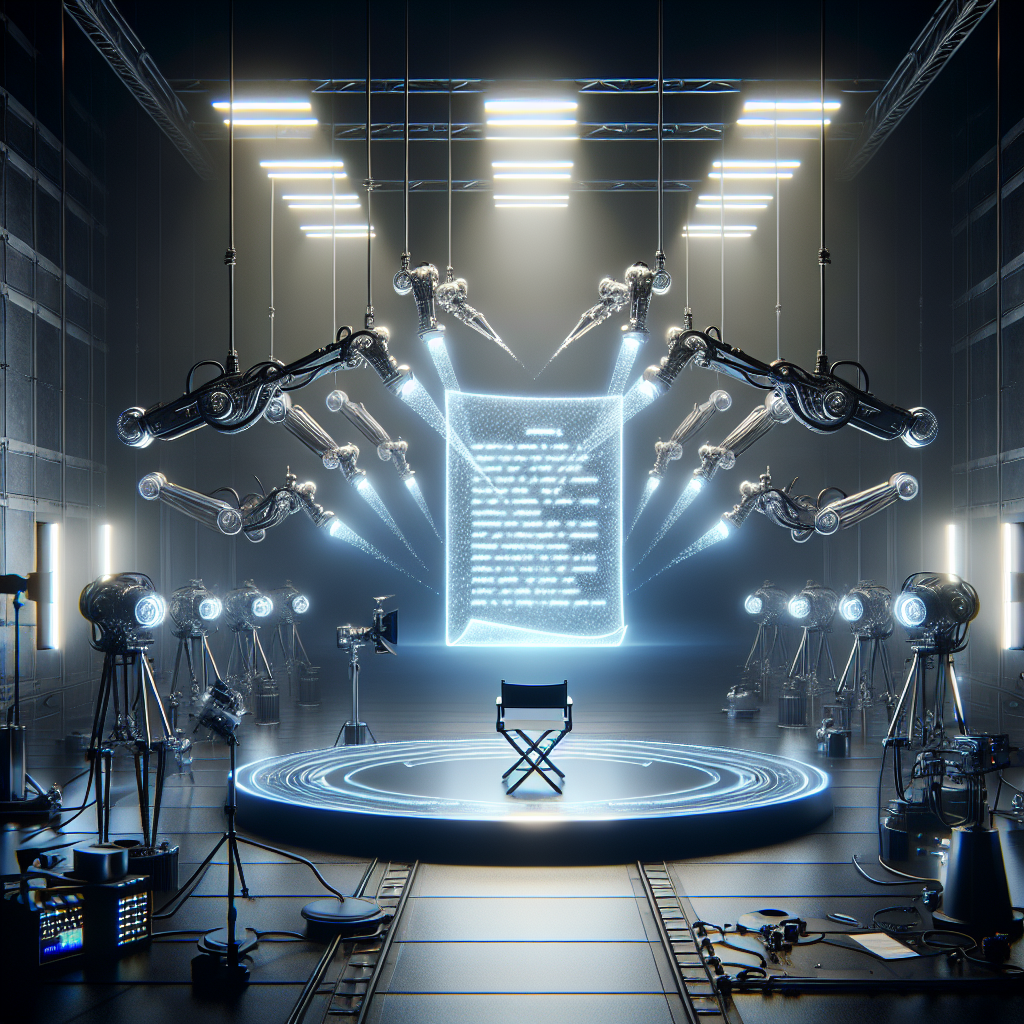The Rise of AI in Screenwriting
As artificial intelligence (AI) continues to evolve, its infiltration into creative industries has become more pronounced. Among these, the screenwriting sector stands out, with AI-generated scripts emerging as a groundbreaking development. This technology promises to revolutionize the way stories are told in film and television, potentially altering the traditional screenwriting landscape profoundly.
How AI-Generated Scripts Work
AI-generated scripts are developed through sophisticated algorithms that can analyze vast amounts of existing screenplay data, learn from structural patterns, dialogue intricacies, and thematic elements, and then generate new scripts based on this learned information. These AI systems are trained using machine learning techniques, pulling from a diverse database of genres, styles, and narratives.
Benefits of AI in Screenwriting
The integration of AI into screenwriting offers several potential benefits. For one, it can significantly speed up the scriptwriting process, allowing for quicker turnaround times in production stages. Additionally, AI can offer a vast array of narrative possibilities by combining elements in novel ways that might not occur to human writers, thus pushing creative boundaries.
Challenges and Concerns
However, the use of AI in screenwriting is not without its challenges. Critics argue that AI-generated scripts might lack the emotional depth and nuance that come from human experience. There is also a concern about the originality of AI-generated content and its potential to reduce job opportunities for human screenwriters.
Case Studies and Real-World Examples
Several film projects have already experimented with AI-generated scripts. For instance, the short film Sunspring, which was scripted by an AI named Benjamin, showcased both the potential and limitations of AI in crafting coherent and emotionally engaging narratives. While the dialogue often bordered on the nonsensical, the experiment offered fascinating insights into alternative narrative structures and dialogues.
Expert Opinions on AI-Generated Scripts
Industry experts are divided on the impact of AI-generated scripts. Some see it as a tool that can coexist with human creativity, enhancing rather than replacing the human touch. Others worry about the implications for creative authenticity and the homogenization of storytelling.
The Future of AI-Generated Scripts
Looking forward, AI-generated scripts are likely to become more sophisticated as technologies evolve. With advancements in natural language processing and machine learning, AI could better mimic human emotional depth and narrative complexity. This could lead to more collaborative models where AI and human creativity work in tandem to produce compelling, innovative narratives.
Reflection and Conclusion
While AI-generated scripts represent a significant technological advancement, their true value may lie in their ability to collaborate and co-create with human writers. As we navigate this new terrain, the screenwriting community must critically assess the benefits and drawbacks, ensuring that technology enhances artistic expression rather than stifles it.
As AI continues to evolve, so too will its role in storytelling. Whether it will replace traditional screenwriting or become a valuable assistant remains to be seen, but one thing is clear: the narratives of tomorrow will be shaped by the innovations of today.


